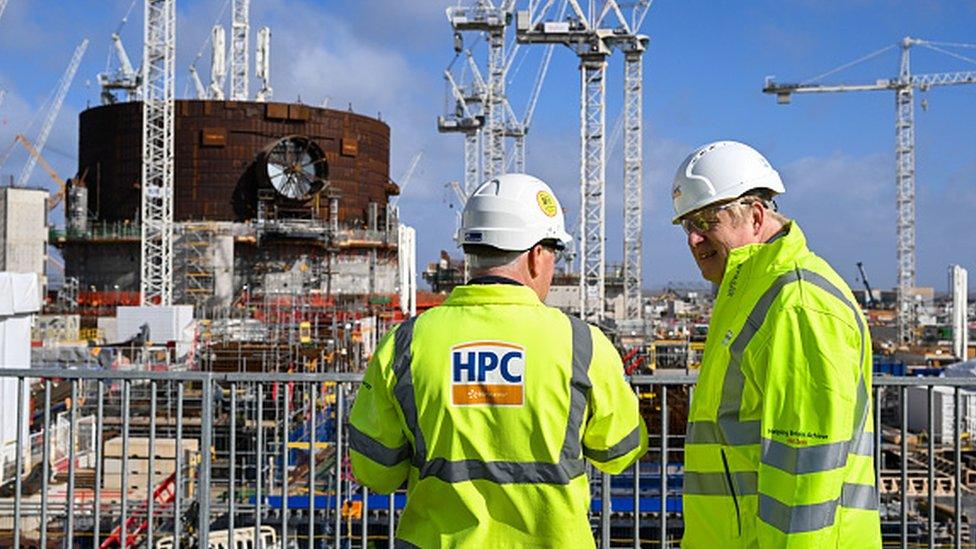Aquind Ltd brings judicial review against Channel cable decision
- Published
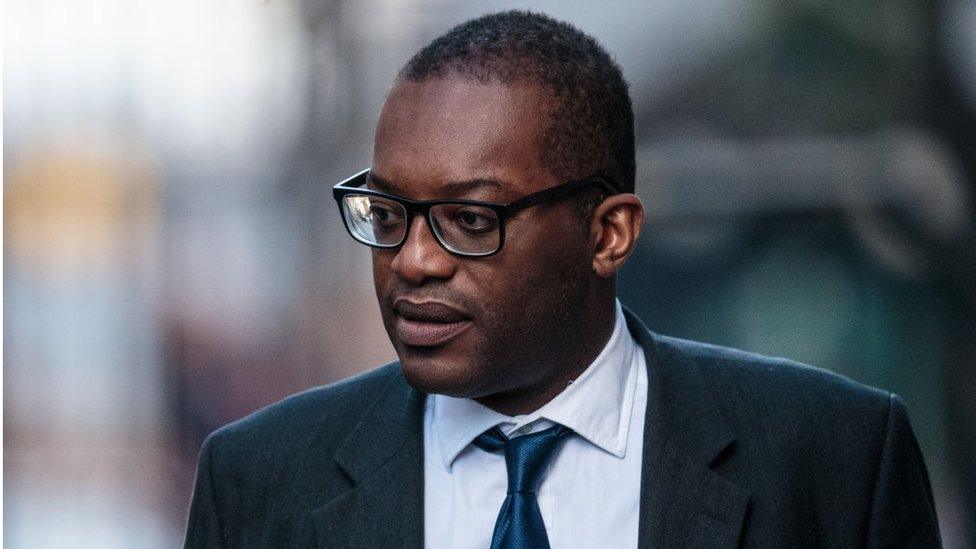
Former Business Secretary Kwasi Kwarteng refused Aquind Ltd development consent
The business secretary "misunderstood the evidence" when he refused permission for a £1.2bn electricity link to France, a court has heard.
The ruling by Kwasi Kwarteng earlier this year is now the subject of a judicial review at the High Court brought by Aquind Ltd.
The company wants to lay cables through Portsmouth in Hampshire to Normandy.
But the proposal was rejected after objections from residents, campaigners and politicians.
Mr Kwarteng said he was not satisfied "more appropriate alternatives to the proposed route" had been fully considered.
But during a two-day hearing Aquind Ltd argued that 29 substation locations had been put forward for consideration, before being "whittled down" to 10.
A final three were shortlisted - Chickerell in Dorset along with Bramley, near Basingstoke, and Lovedean, outside of Portsmouth - although only the Hampshire pair were put forward for a cost benefit analysis.
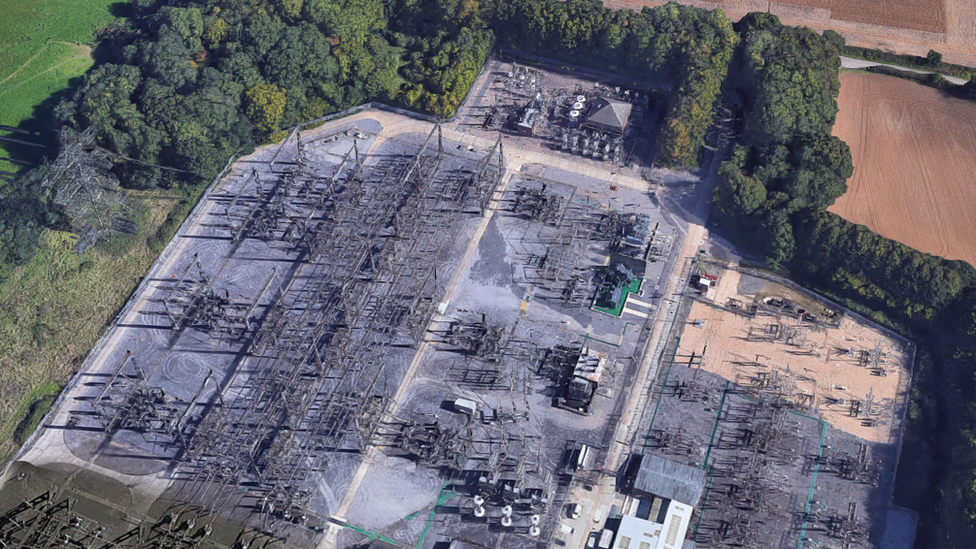
Aquind's proposals included plans for a converter station close to the National Grid substation at Lovedean
Aquind's lawyer, Simon Bird KC, told the court "environmental constraints" limited preferred landfall locations, but that Eastney Beach was identified as "one of the best performing locations".
And following a feasibility study in 2015 the Lovedean substation was selected.
Mr Bird said other substations were either too far from the coast and would "impact on project cost", or were in regions that were "too congested" such as the site at Bolney in West Sussex.
"The National Grid said Lovedean was the cheapest option," he told the court.
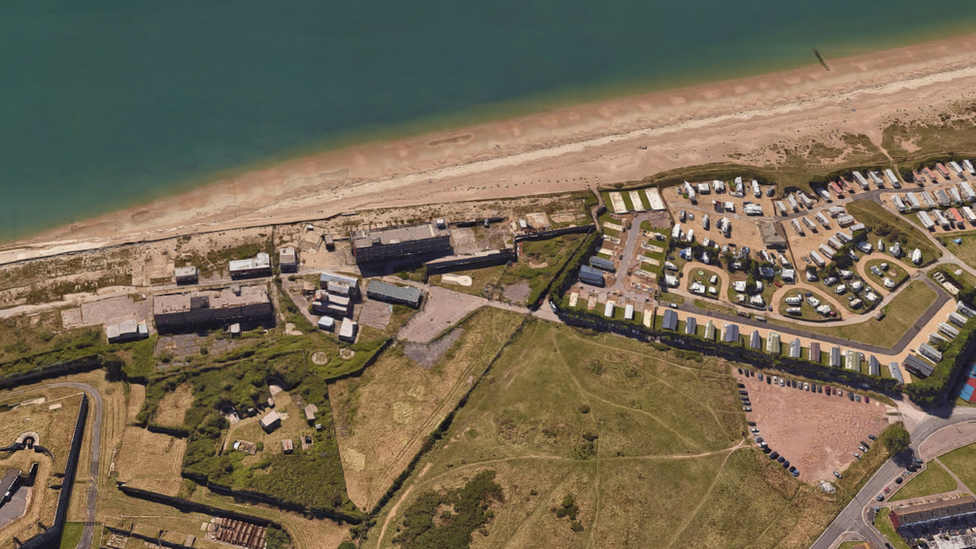
The pipeline would make landfall at Eastney beach, supplies would then travel to the substation at Lovedean
Mr Bird said the former secretary of state had "misunderstood the evidence" when making his decision, because the information he had was not fully summarised.
In response the government's barrister told the court Mr Kwarteng had been "entitled to consider if there was an alternative" site which showed "proper scrutiny" had been taken.
He said the government was "left in the dark" over the reasons why seven of the 10 shortlisted substations were rejected, because there was "nothing by way of comparative analysis".
The secretary of state's central concern was that "landing the interconnector in one of the busiest urban areas was a fundamental problem", he said.
He also cited responses from local councils in the region which all identified the absence of alternatives.
"Yes, there'd be additional costs but it needs to be assessed given the impacts of this proposed connection," he added.
At one point Mrs Justice Lieven said she was "genuinely confused" by the complex evidence and also "terribly frustrated with everyone in this case".
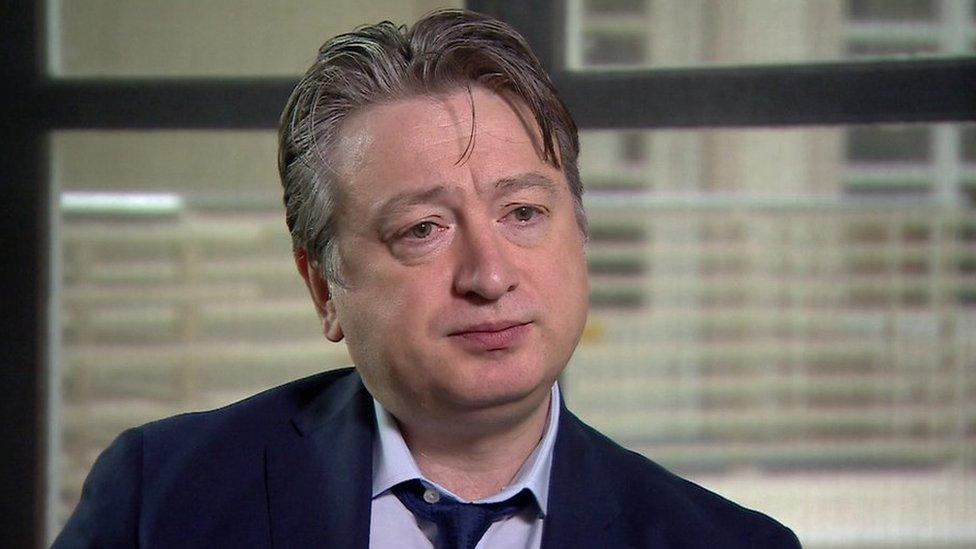
Aquind is part-owned by Ukrainian-born British businessman Alexander Temerko
Aquind, which is part-owned by Russian-born Victor Fedotov, and another of his businesses, have donated £700,000 to 34 Conservative MPs since the project began, according to the BBC's Panorama programme.
Another director, Ukrainian-born Alexander Temerko, has donated a further £700,000 to the party.
Aquind has previously said the planned 2GW interconnector could supply up to 5% of the UK's energy needs.
Justice Lieven reserved her decision.
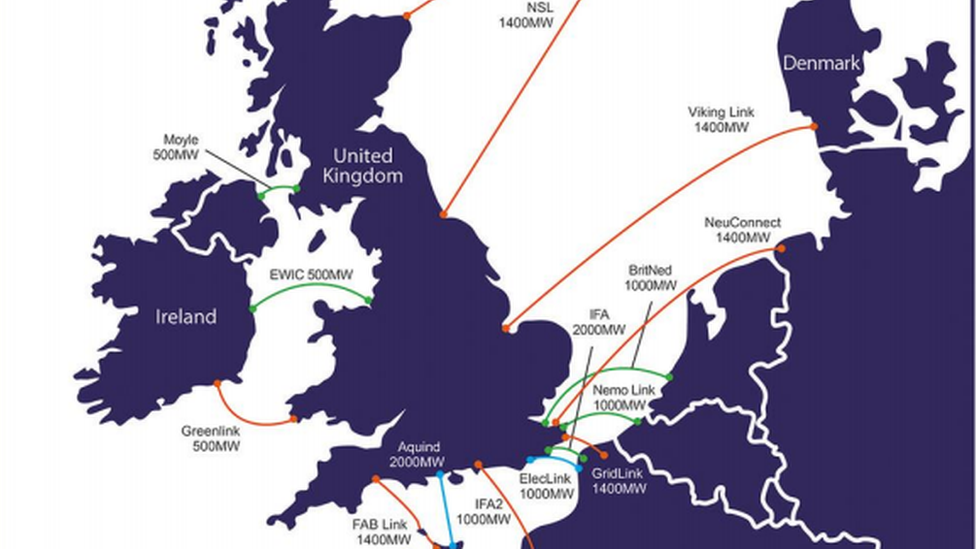
Aquind claims Great Britain's interconnector capacity could increase to nearly 18 GW by 2023

Follow BBC South on Facebook, external, Twitter, external, or Instagram, external. Send your story ideas to south.newsonline@bbc.co.uk, external
Related topics
- Published8 March 2022

- Published20 January 2022

- Published3 October 2022
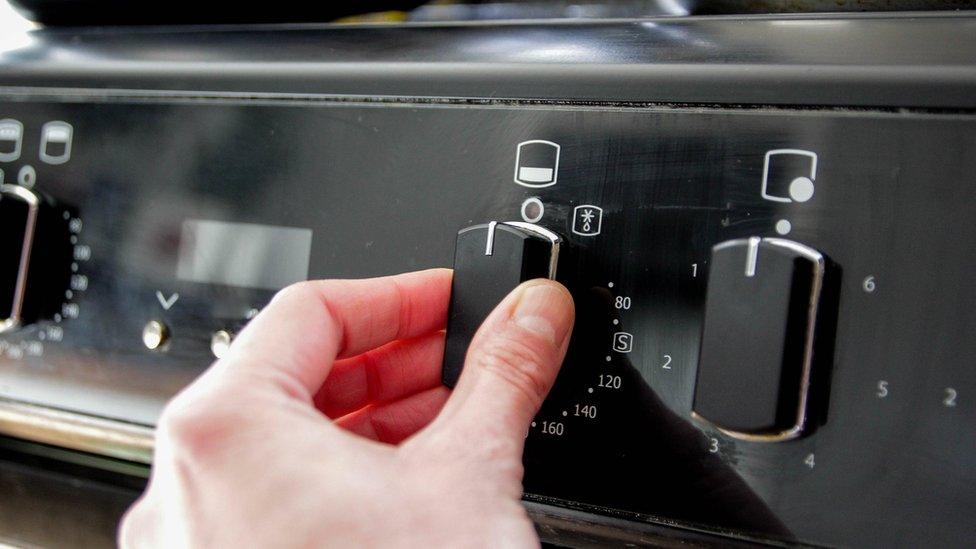
- Published7 November 2022
